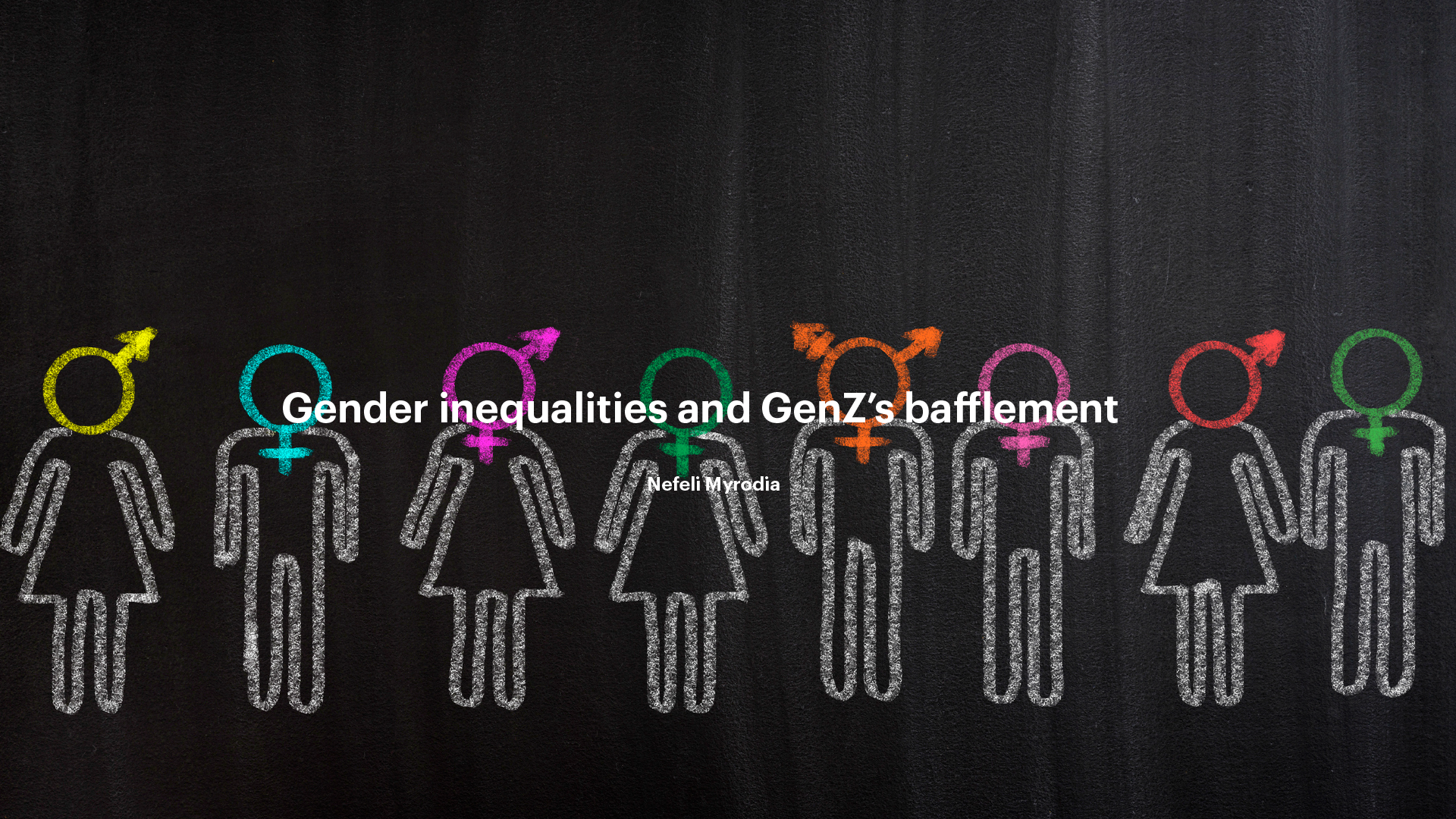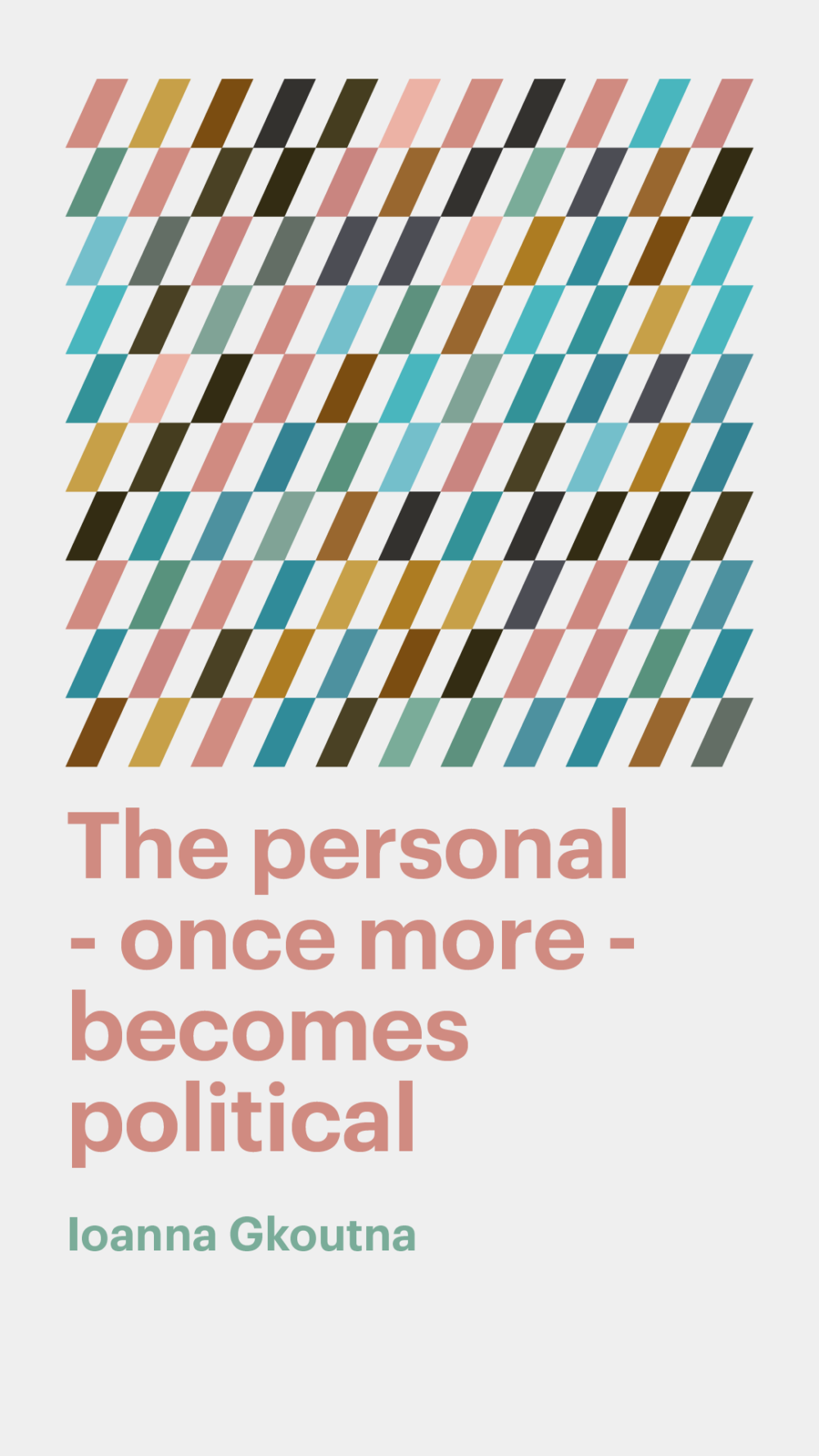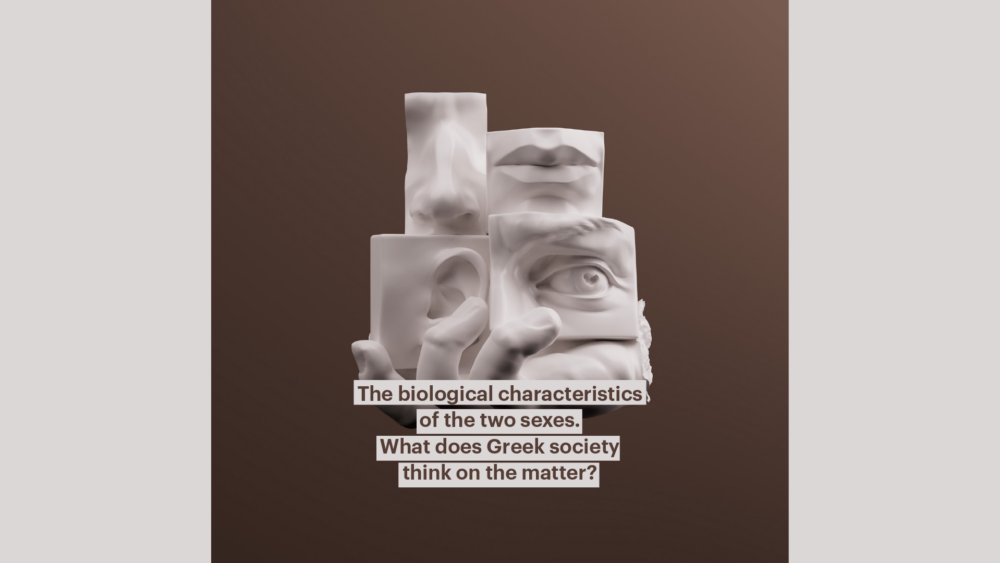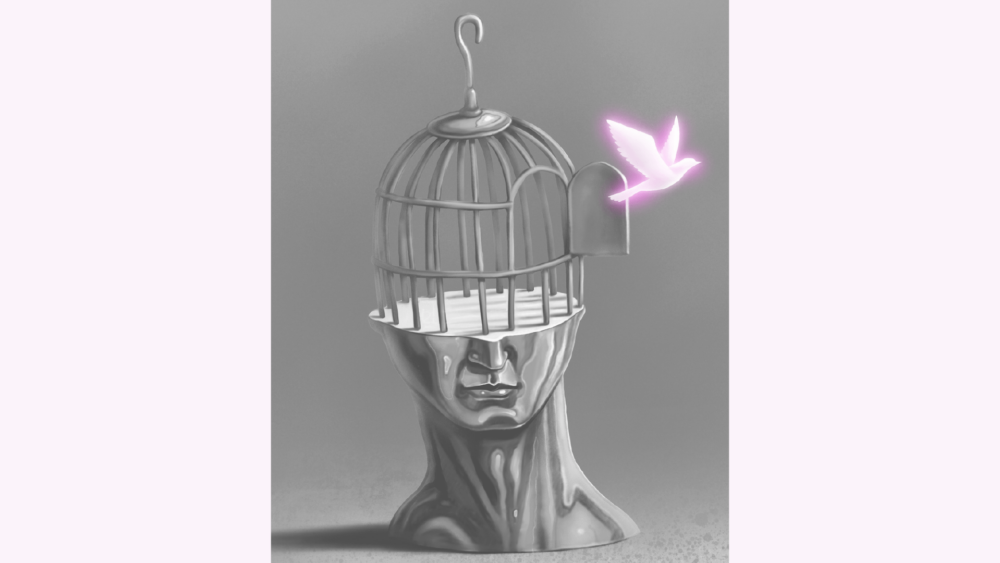
Gender inequalities and GenZ’s bafflement
The recent nationwide survey titled “Gender Divide”, conducted by Eteron in collaboration with King’s College London, highlights how deep the roots of gender inequalities are within Greek society. The survey confirms a number of entrenched perceptions about the position of women and the LGBTQI+ community in Greece today.
Patriarchy, my love
There are some important findings emerging from the survey in question. First of all, we see a wider acknowledgement of the fact that Greek society is patriarchal, with 75.1% of the sample agreeing or rather agreeing with that statement. There is also a rather telling difference between the responses given by men and women, with 68.7% of the men saying they agree or rather agree with it, while the respective percentage amongst women is as high as 81.4%.
The findings highlight the widespread belief that women face a significantly higher risk of sexual harassment and physical abuse, with respective rates being 79.5% and 79.4%. These figures reflect how common gender-based violence against women is, something that was also reflected in a recent survey by the National Centre for Social Research-EKKE (EKKE, 2022-23), which showed the alarming dimensions of this phenomenon and the urgent need for institutional interventions and prevention measures.
At the same time, the survey reveals that traditional gender roles are still deeply entrenched within Greek society. Women seem to take on, as other recent studies (Eurostat, 2019) show, a disproportionate share of the burden of looking after family members and doing household chores, a fact which reinforces the perpetuation of gender inequality. This double burden limits women’s opportunities for career advancement and full-time employment, thus contributing to the reproduction of inequalities at both economic and social levels. In the workplace, men dominate and hold the vast majority of the available managerial positions while the pay gap between women and men still exists, despite persistent feminist demands and EU action plans (European Parliament, 2023). Although the data from this and other surveys in relation to the inequalities experienced by women are eye-opening, still 51.6% of men state that women exaggerate the gender injustices that they experience in Greece.
Despite this dystopian overview, the survey reflects a better understanding of terms related to gender inequalities, such as feminism, patriarchy, femicide, and toxic masculinity. The recognition of these terms by broader sections of Greek society may, under certain conditions, constitute a first step towards the realisation of the existence of inequalities in their different forms, which would then lead to addressing and tackling them collectively. Furthermore, the perception that racial discrimination has in some ways eased over the last 20 years is also recorded. Although important, this conviction requires further investigation.
It is worth mentioning that according to the survey participants, major institutions such as the State, political parties, businesses, and the media do not promote gender equality. At the same time, they acknowledge the relative contribution of the education system in addressing gender inequalities – a contribution which could be a key factor in designing better targeted policies for gender equality starting as early as primary education.
What about GenZ?
It is particularly interesting to note the divergence in the responses of the younger generation (17-24 year-olds), compared to the relative consistency observed amongst older age groups, especially between 25-34 and 35-44 year-olds. For GenZ, stereotypes associated with traditional gender roles seem increasingly less appropriate or relevant to their everyday experiences. More specifically, GenZ has been identified as the generation with the most progressive beliefs regarding gender fluidity (Twenge, 2024) and better understands terms such as “woke culture” (32.3% of 17-24 year-olds are aware of the term compared to the sample average of 23.3%) or “toxic masculinity” (81.8% of 17-24 year-olds understand the term compared to the average of 66%).
In such cases, it would be useful to look at how the responses between men and women of this age group compare, in order to see whether Greece follows the general trend that was recently reflected in a similar survey in Great Britain on the gap between the opinions of male and female Zoomers regarding gender inequalities. The survey conducted by King’s College London and Ipsos (Ipsos, 2024a) highlighted an increasing divergence in attitudes towards feminism, masculinity and gender equality among young men and women.
Namely, young GenZ men appear to be more conservative when it comes to gender equality issues and significantly less positive than young women about the impact of feminism (Ipsos, 2024b), and believe, to a greater extent than older men, that feminism has done more harm than good. In contrast, younger GenZ women appear to be more committed to feminist ideas and to advocating for gender equality. Such phenomena, apart from being a real risk of gender divide for the young generation, are also reflected in social media through the reproduction of globally specific patterns of masculinity that affect GenZ in Greece. The sense of alienation that young men of this generation often feel from any public debate on feminist issues, as well as their increasing attachment to online platforms in their daily lives, could also explain the response they gave to the relevant question included in the “Gender Divide” survey regarding loneliness: 39.1% of 17-24 year olds think that men are more likely to feel lonely, compared to 4.8% who think that this is likely to be the case for women.
What is probably most striking in this age group, are the responses given about the patriarchal society and the punishment of crimes against women. When asked whether Greek society is patriarchal, only 68.8% agreed or rather agreed, which is the smallest percentage out of all the other age groups. Moreover, while 97% of 17-24 year olds say they know the meaning of the term femicide, only 55.8% believe that crimes against women should be punished more severely. Finally, 30.5% of respondents between 17 and 24 years old believe that in 20 years from now it will be harder or much harder to be a man than a woman (compared to 19.2% of the average), thus further amplifying the sense of confusion and exclusion that young men are likely to experience in this new era of woke culture.
In conclusion, this survey offers a multifaceted insight into gender inequalities and the challenges that women face in Greece today. It shows that there are still deep-rooted pathologies within Greek society regarding gender equality – pathologies related to systemic and structural barriers that are partly reproduced among younger generations in different forms and that require further investigation. However, at the same time, an optimistic perspective emerges as to the possibility of better understanding and mitigation of those issues in the coming years. A prerequisite for this is that these valuable findings serve as a catalyst for the development of targeted policies to promote an equitable and just society.
Bibliographical references
EKKE, 2022-23, Gender-based violence against women and other forms of interpersonal violence in Greece (GBV-EL) https://www.ekke.gr/research/outcomes/deliverables-files/42 (in Greek)
Eurostat, 2019, Participation time per day in household and family care, by gender. https://ec.europa.eu/eurostat/statistics-explained/index.php?title=How_do_women_and_men_use_their_time_-_statistics#Participation_of_women_higher_for_cleaning.2C_cooking.2C_laundry.2C_etc
European Parliament, 2023, Gender pay gap in Europe: facts and figures (infographic)
https://www.europarl.europa.eu/topics/en/article/20200227STO73519/gender-pay-gap-in-europe-facts-and-figures-infographic
Ipsos, 2024a, International Women’s Day 2024: Global Attitudes towards Women’s Leadership. https://www.kcl.ac.uk/giwl/assets/iwd-2024-survey-global-findings.pdf
Ipsos, 2024b, Emerging tensions? How younger generations are dividing on masculinity and gender equality. https://www.kcl.ac.uk/policy-institute/assets/emerging-tensions.pdf
Twenge M. Jean, 2023, Generations: The Real Differences Between Gen Z, Millennials, Gen X, Boomers, and Silents―and What They Mean for America’s Future, New York: Atria Books.



